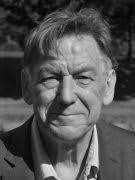

 HarperCollins
HarperCollins
Signor Marconi's Magic Box: The invention that sparked the radio revolution


Key Metrics
- Gavin Weightman
- HarperCollins
- Paperback
- 9780007130061
- 8 X 5 X 0.88 inches
- 0.69 pounds
- Biography & Autobiography > Science & Technology
- English
 Secure Transaction
Secure TransactionBook Description
The intriguing story of how wireless was invented by Guglielmo Marconi - and how it amused Queen Victoria, saved the lives of the Titanic survivors, tracked down criminals and began the radio revolution.
Wireless was the most fabulous invention of the 19th century: the public thought it was magic, the popular newspapers regarded it as miraculous, and the leading scientists of the day (in Europe and America) could not understand how it worked. In 1897, when the first wireless station was established by Marconi in a few rooms of the Royal Needles Hotel on the Isle of Wight, nobody knew how far these invisible waves could travel through the 'ether', carrying Morse Coded messages decipherable at a receiving station. (The definitive answer was not discovered till the 1920s, by which time radio had become a sophisticated industry filling the airwaves with a cacaphony of sounds - most of it American.)
Marconi himself was the son of an Italian father and an Irish mother (from the Jameson whiskey family); he grew up in Italy and was fluent in Italian and English, but it was in England that his invention first caught on. Marconi was in his early twenties at the time (he died in 1937). With the 'new telegraphy' came the real prospect of replacing the network of telegraphic cables that criss-crossed land and sea at colossal expense. Initially it was the great ships that benefited from the new invention - including the Titanic, whose survivors owed their lives to the wireless.
Author Bio
At school I did not study history and my interest in the past was not excited until I took a degree in sociology at Bedford College, London University. It was an old-fashioned course which included a great deal of social and economic history which I had never come across in school. Our professor, the flamboyant Oliver McGregor was keen on agricultural history and harangued us about the iniquities of the enclosure of land and the importance of innovations in ploughing techniques.
It was at Bedford College ( which is long gone ) that I first began to study the industrial revolution, a huge subject that has fascinated me ever since. I had worked as a local journalist for five years before I went to university, by which time I was twenty-two. I went back into journalism writing features and leaders before joining New Society magazine (which is also long gone ) in 1974. In the four years I was there I wrote on a huge range of subjects, including the history of poaching in Britain and developed an interest in housing and many social issues. Read more..
Quite by chance I was invited to join London Weekend Television's Friday night current affairs show The London Programme as a reporter. I knew nothing at all about television at first but in time became a producer, then a producer-director and the author of many programmes which I also wrote and narrated. My background in social history was invaluable as I tackled the history of London in two series of The Making of Modern London. I had always had an interest in wildlife and I had the luck to be given the opportunity to make a series called City Safari and later Brave New Wilderness. With the London history series I had started writing books, along with Steve Humphries who worked with me as an associate producer. Steve is still making wonderful television programmes with his own company Testimony Films based in Bristol.
Source: gavin-weightman.co.uk
Videos
No Videos
Community reviews
Write a ReviewNo Community reviews